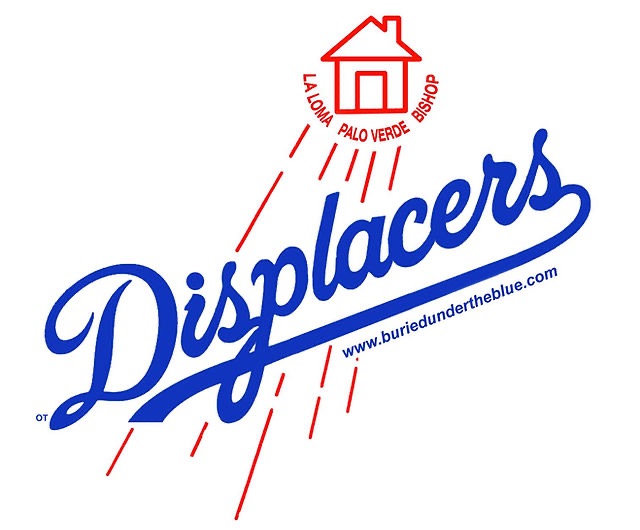Today the Los Angeles Dodgers are worth $5.4 billion. But for the land they took to play ball, Vincent “Chente” Montalvo’s family received what his grandfather John De Nava called peanuts. His grandmother, Adela De Nava–now 91 years old(!)–also continues to stand by this claim. It’s not just about the money, though. Earlier this year, California Assemblywoman Wendy Carrillo introduced AB 1950, or the Chavez Ravine Accountability Act, which would order the city of Los Angeles to atone for its part in evicting nearly 1,400 Mexican-American families in the Bishop, La Loma, and Palo Verde communities to place Dodger stadium on top. Vincent and yours truly discuss AB 1950, as well as the meaning of “reparations” in the current political environment. To follow Vincent and his work at Buried Under the Blue, do so here.
(1:01) Welcome Vincent “Chente Montalvo” to J.T. the L.A. Storyteller Podcast, also known as Los Cuentos De Los Ángeles
(3:43) Vincent is a founding member of Buried Under the Blue, which seeks to hold the city of Los Angeles and the Dodgers responsible for evicting his grandparents and thousands more in “Chavez Ravine”
(6:35) Vincent acknowledges the Kizh nation as the aboriginal people in Los Angeles and discerns between claims of land back for his family and land back for First Peoples
(11:38) Approximately how many people were in Bishop, La Loma, and Palo Verde, called “Chavez Ravine”?
(22:29) Vincent himself grew up in Echo Park, and also went to nearby Belmont High School, for the record
(30:34) The communities of Bishop, La Loma and Palo Verde were self-reliant and even organized their own Little League
(35:25) Private property was the fulfillment of the American Dream for Vincent’s family, until a constitutional amendment robbed them of it for the sake of the Dodgers
(40:24) Assembly Bill 1950 by Wendy Carrillo, also known as the Chavez Ravine Accountability Act, was introduced in the California legislature’s Judiciary Committee just this past March 2024
(42:13) Why Buried Under the Blue is not on board with AB 1950 in its current form
(47:51) Vincent and his family are not simply seeking financial compensation but an official apology from the Dodgers
(50:54) Due to his work Vincent has heard increasingly from Dodger fans who connect with his story
(55:55) AB 1950 in its current form does not identify the Dodgers for their instrumental role in the eviction of Vincent’s grandparents and their more than 1,000 neighbors
(59:26) How to support Vincent and his work with Buried Under the Blue
Speaking of standing atop a piece of history, please also check out Areli Morales Lopez’s latest for Making a Neighborhood, “The Last Laundromat by Venice Beach,” here. And remember that Making Our Neighborhood: Redlining, Gentrification and Housing (2021), the magazine, is once again available for purchase. Grab your copy for you and your neighborhood, here.
Last but certainly not least, to make a one-time donation to my nonprofit work for working-class communities in Los Angeles, please do so here. To support the production of J.T. the L.A. Storyteller Podcast for as little as $5 a month, check out my page at patreon.com/jimbotimes.
J.T.



